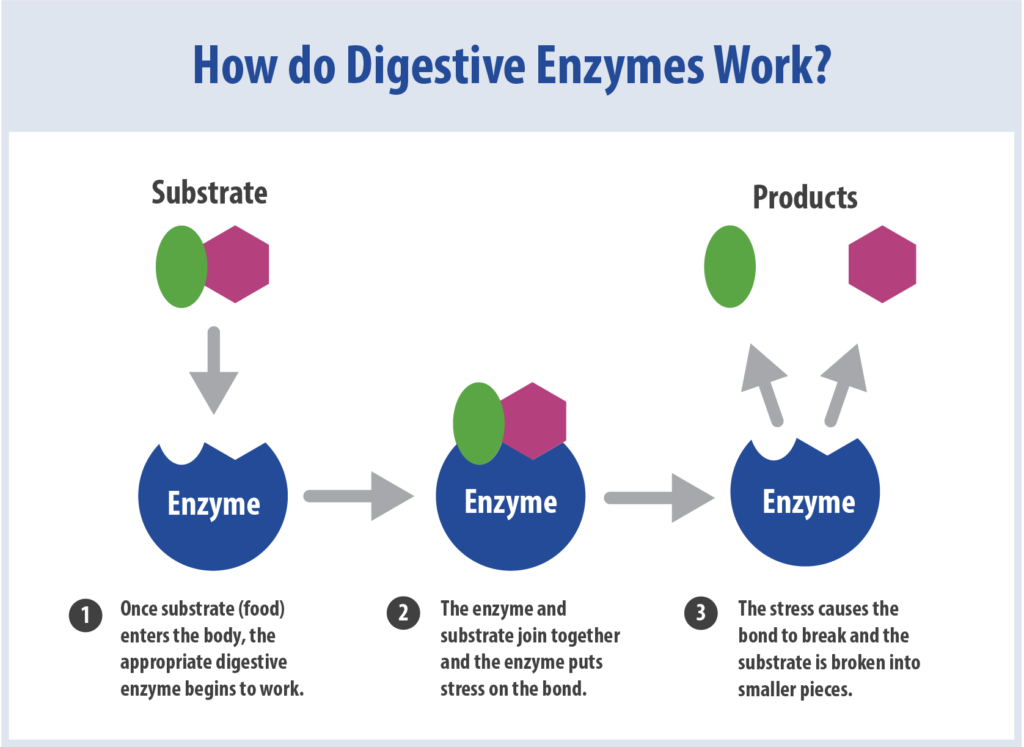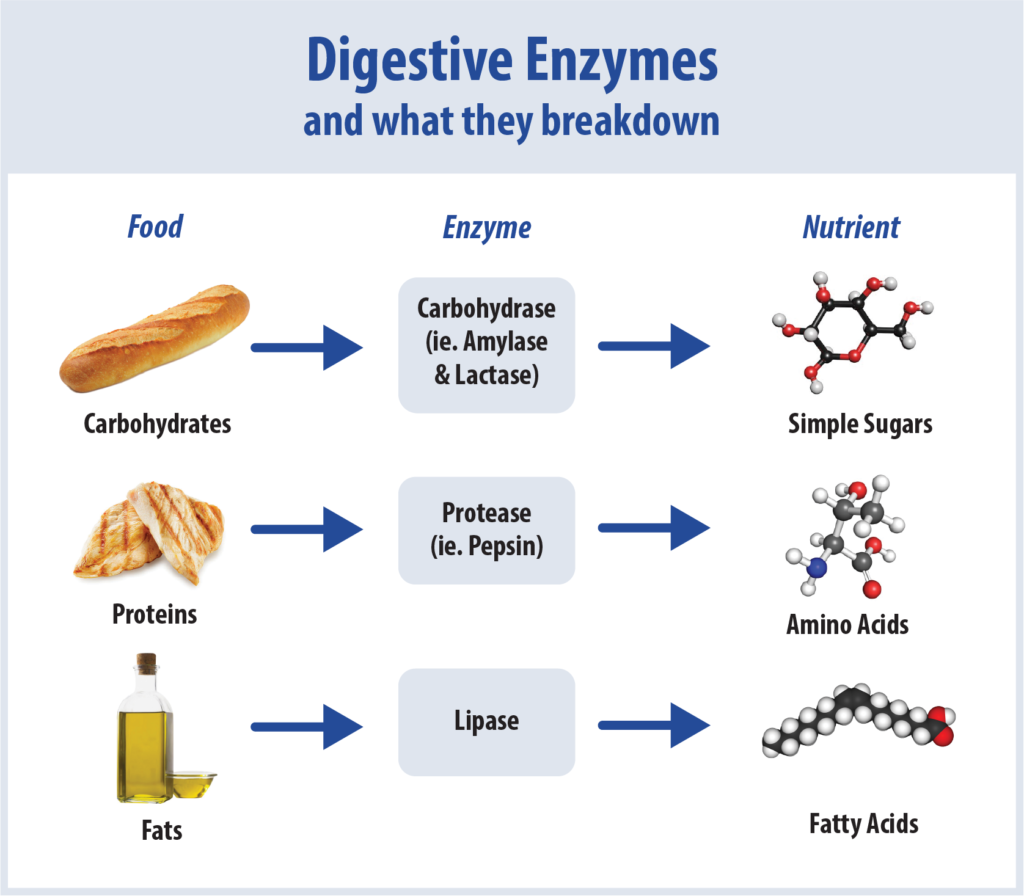The digestive system consists of a complex network of organs that are responsible for the digestion and absorption of food, as well as the elimination of waste. Within this network, digestive enzymes work to break down ingested food into their smallest components, ensuring that the body can absorb and utilize them efficiently for energy, growth and repair. There are several types of digestive enzymes, some produced within the body, for example the digestive enzymes in saliva that are stimulated by the physical act of chewing, and some produced by various plants that we consume. Each digestive enzyme breaks down a different compound, serving a vital role in digestion and overall well-being.
What are Digestive Enzymes and How do They Work?
Digestive enzymes are specialized proteins produced throughout the body’s digestive tract – mainly in the salivary glands, pancreas, small intestine and stomach. These enzymes work harmoniously to facilitate the breakdown of macronutrients – carbohydrates, proteins, and fats – into their respective building blocks. By breaking down food into its elemental components, digestive enzymes facilitate the absorption of essential nutrients, including vitamins, minerals, and amino acids. They do this through a process called hydrolysis, in which digestive enzymes sever bonds in specific molecules, yielding smaller compounds that can be readily absorbed by the body. These smaller components are crucial for numerous functions, including the body’s production of energy, muscle and neurotransmitters.

Types of Digestive Enzymes
Carbohydrase: The carbohydrase group includes several enzymes that are responsible for the digestion of carbohydrates, such as starches and sugars. One example is lactase, the enzyme responsible for breaking down lactose, a disaccharide sugar found in dairy products, into its monosaccharide components, glucose and galactose. When individuals lack sufficient levels of lactase, after consuming dairy the undigested lactose travels to the colon and ferments, resulting in digestive discomfort (lactose intolerance).
Lipase: Lipase is an enzyme crucial for the digestion of dietary fats or triglycerides into fatty acids and glycerol. Lipase works at the surface of fat globules, breaking down the ester bonds between fatty acids and glycerol molecules.
Protease: Protease enzymes encompass a group of enzymes responsible for the breakdown of proteins into amino acids, the building blocks of proteins. One of the main enzymes within this group is pepsin. Thriving in the acidic environment of the stomach, pepsin’s activity is initiated by the stomach’s hydrochloric acid (HCl), which not only activates pepsin but also denatures proteins, rendering them more accessible to enzymatic attack.
Plant-Based: Bromelain, found in pineapple, and Papain, found in papaya, are two plant-derived enzymes exhibiting proteolytic properties. They assist the body’s own digestive mechanisms in reducing large protein molecules into smaller peptide units or amino acids in a broad pH range. Papain can also breakdown toxic elements in food, which gives it a marked ability to enhance the total digestive process.

The Role of Betaine Hydrochloride (HCl)
Alongside digestive enzymes, betaine HCl plays a critical role in digestive function. Betaine HCl serves as a supplemental source of hydrochloric acid, bolstering stomach acidity and promoting optimal digestion. Adequate stomach acid is essential for activating pepsin, initiating protein digestion, and creating an unwelcoming environment for harmful pathogens.
Insufficient production of digestive enzymes can lead to a cascade of digestive issues, including bloating, gas, indigestion, and nutrient malabsorption. When nutrients aren’t absorbed, the body can’t achieve optimal wellness, regardless of how healthy one’s diet may be. Factors such as age, diet, stress, and certain medical conditions can compromise enzyme production, highlighting the importance of supporting digestive function through targeted enzyme supplementation. To work properly, these supplemental digestive enzymes must be taken at the beginning of meals to ensure they are ready to break down food.
The significance of digestive enzymes extends far beyond mere digestion; they are the gatekeepers of nutrient absorption and cellular vitality, and they play a central part in overall wellness. If you are experiencing digestive upset and suspect that your body’s digestive enzymes are not functioning properly, meet with your healthcare practitioner to discuss if supplemental digestive enzymes may be appropriate for you.

